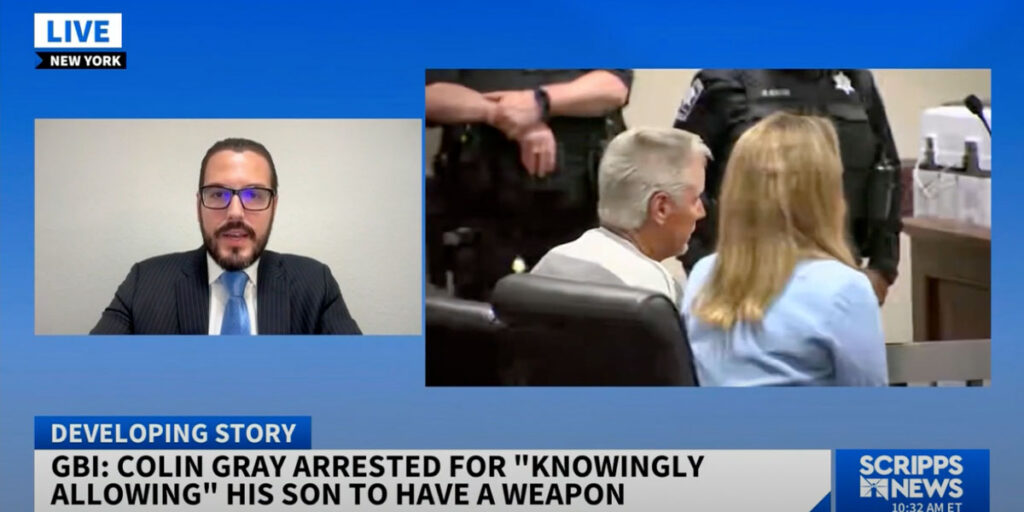Russell Morgan, Founding Partner at Morgan Legal Group, Explores Legal Ramifications for Parents in School Shooting Cases
In a recent interview, Russell Morgan, founding partner at Morgan Legal Group, shared his legal expertise on the increasingly scrutinized issue of parental responsibility in school shootings. The discussion revolved around a particularly troubling case involving a 14-year-old alleged shooter whose father gifted him a firearm for Christmas shortly after the son had been accused of making school threats. The case raises questions about the culpability of parents in such tragic events and the evolving legal landscape around this issue.
A Growing Legal Trend: Holding Parents Accountable
Morgan explained that while it is not common for parents to be held directly responsible for their children’s criminal actions, there are circumstances where they can be found at fault, particularly when they knowingly contribute to the risk. “Parental responsibility laws exist to ensure parents are held accountable for what their children do,” Morgan noted. “These laws are grounded in the idea that parents have a legal and moral duty to prevent their children from causing harm to others.”
In this case, the father had previously stated that his son did not have unsupervised access to firearms, yet he later gifted his son a gun. Morgan emphasized that the legal system may consider this a significant factor in determining parental responsibility, especially given the son’s prior involvement in making threats. This mirrors the landmark case involving Jennifer and James Crumbley, the first parents of a mass shooter to be convicted of manslaughter for their negligence.
Discrepancies in Charges: The Case of Colt Gray
When asked about the difference in charges faced by the alleged shooter, Colt Gray, and his father, Morgan explained that the discrepancy is largely due to the son’s status as a minor. “Minors are held to a different, often lower, standard than adults,” Morgan said. “The father, however, is charged with crimes that imply intent, such as Cruelty to Children, because he allegedly provided his son with the weapon used in the shooting, knowing the potential consequences.”
Morgan clarified that the father’s charges reflect the severity of his alleged actions, as he is accused of directly contributing to the tragic outcome by enabling his son’s access to the weapon.
Potential Defenses for the Father
Regarding possible defenses for the father, Morgan suggested that he might argue a lack of knowledge or involvement in the actual shooting or claim that the firearm he provided was not the one used in the crime. “It remains unconfirmed whether the gun gifted by the father was the one used in the shooting,” Morgan pointed out. “However, this defense may not suffice, given the broader context of the father’s knowledge of his son’s access to weapons and the associated risks.”
Family Environment Under Scrutiny
Early reports suggest a deeply troubled home environment, with the grandmother blaming the instability within the household for the events that unfolded. Morgan indicated that as more details emerge about the family’s circumstances, these factors could play a significant role in the legal proceedings.
Conclusion
As legal standards continue to adapt in response to the realities of school shootings, Morgan Legal Group remains a key voice in exploring the boundaries of parental responsibility. Russell Morgan’s analysis underscores the complexities involved when determining culpability in these tragic cases.









